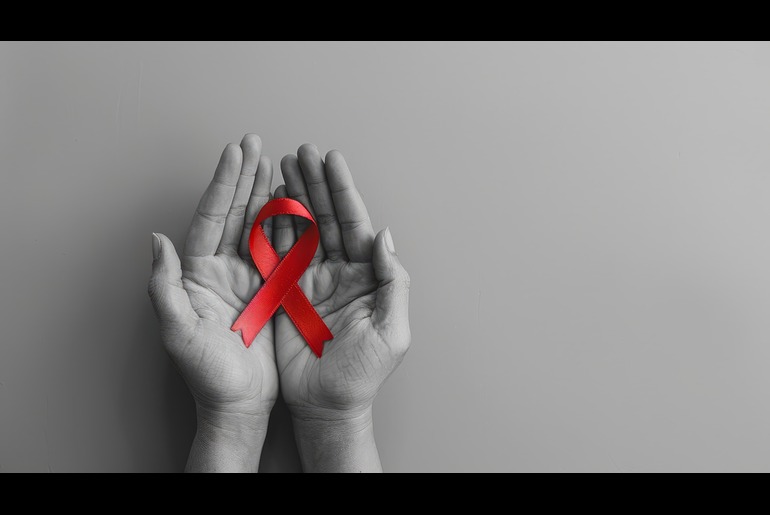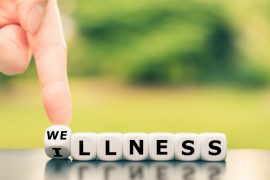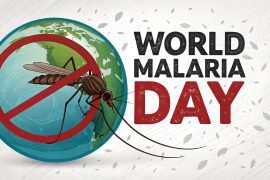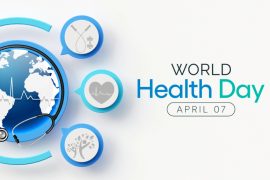HIV testing and prevention are important steps in managing the spread of HIV and protecting yourself and others. Getting tested for HIV lets you know your status, and if detected early, it can be managed with proper treatment. Preventing HIV means taking steps to avoid getting infected and stopping the virus from spreading to others. In this guide, we’ll explain HIV testing, when to get tested, how to prevent HIV, and why these steps matter for your health and the health of those around you.
World AIDS Day [1]
World AIDS Day was first observed in 1988 and has since become an important day globally. It reminds us that HIV exists and that there is still much work to do in terms of education, prevention, and breaking down stigma. This day also highlights the importance of getting tested and knowing your HIV status because early detection can help in managing the virus effectively.
Why HIV Testing and Prevention Are Important [2]
Getting tested for HIV and taking steps to prevent it are some of the best ways to stop the virus from spreading and keep yourself healthy. Knowing your HIV status can be life-saving because if you test positive, early treatment can help control the virus and stop it from turning into AIDS.
By practicing safe habits and using preventive measures, you can protect both yourself and others from HIV. In order to lower the rate of new infections and promote healthier lifestyles for those who test positive, testing and prevention are essential.
What is HIV? [3]
HIV stands for Human Immunodeficiency Virus. It is a virus that attacks the immune system, which is the body’s defence against illnesses. If left untreated, HIV can gradually weaken the immune system. It makes it more difficult for the body to fight infections and diseases.
While there is currently no cure for HIV, there are treatments available that help control the virus. These treatments allow people with HIV to live long, healthy lives. The earlier the virus is detected, the better the chances of managing it effectively.
Progression from HIV to AIDS [4]
If HIV is not treated, it may lead to AIDS (Acquired Immunodeficiency Syndrome), which is the end stage of HIV infection. At this time, the immune system is significantly weakened, making the body more susceptible to dangerous illnesses and disorders. However, with the right treatment and care, many people with HIV never develop AIDS and can lead healthy lives.
This is why World AIDS Day focuses so much on education, testing, and prevention because knowing your status early can prevent the virus from progressing to this advanced stage.
HIV Testing: Why, When, and How
One of the key messages of World AIDS Day is the importance of getting tested for HIV. Knowing your status is the first step toward taking control of your health and preventing the spread of the virus.
Why HIV Testing Matters [5]
HIV testing is important for several reasons. First, it helps you understand your own health status. If you test positive for HIV, finding out early means you can start treatment right away, which can help you stay healthy for many years. Plus, knowing your status helps you protect others because you’re more likely to take steps to prevent spreading the virus.
When Should You Get Tested? [6]
It’s recommended that everyone get tested for HIV at least once as part of routine healthcare. This is especially important if you’re sexually active or have had multiple partners. Some groups, such as those in relationships with an HIV-positive partner or those who share needles, should get tested more frequently. If you’ve been exposed to HIV or had unprotected sex, it’s important to get tested as soon as possible.
Types of HIV Tests [7]
There are a few different types of HIV tests, and they all work in slightly different ways:
- Antibody Test: This is the most common type of HIV test. It looks for antibodies that your body makes in response to HIV. These tests can be done with blood or oral fluid.
- Antigen/Antibody Test: This test looks for both HIV antibodies and antigens, which are parts of the virus itself. This test can detect HIV earlier than an antibody test.
- Nucleic Acid Test (NAT): This is a more advanced test that looks for the actual virus in your blood. It’s usually used for people who may have been exposed to HIV very recently.
These tests can be done at health centres, clinics, or even at home with self-test kits.
HIV Prevention: How to Protect Yourself and Others [2]
While HIV treatment has come a long way, preventing the spread of HIV is just as important. There are several simple steps you can take to protect yourself and others from HIV:
- Use Condoms: Using condoms during intercourse is one of the most effective strategies to avoid HIV and other sexually transmitted diseases (STIs).
- Limit Your Number of Partners: You can reduce your risk of HIV and other diseases by not having multiple sexual partners.
- Don’t Share Needles: If you use injection drugs, never share needles with others. Sharing needles is also a common way that HIV can spread.
- Take Preventive Medication: If you are at a higher risk for HIV, there are medications that can reduce your chances of getting infected. Talk to your doctor to learn more about your options.
Breaking the Stigma Around HIV Testing and Prevention [8]
Unfortunately, there is still a lot of stigma around HIV testing and prevention. Many people avoid getting tested because they are afraid of what others might think. But getting tested is a responsible and important step for everyone’s health.
Breaking the stigma around HIV is crucial in encouraging more people to get tested and seek preventive care. Education is key to helping people understand that HIV is a manageable condition and that getting tested is simply part of taking care of yourself and those around you.
Where to Get Tested and Access Preventive Care
There are many places where you can get tested for HIV, including local clinics, community health centres, and even through at-home testing kits. These services are often confidential, and the healthcare providers will guide you through the testing process and help you understand your results.
In addition to testing, these centres also offer preventive care, such as counselling, condom distribution, and information on medications that can help reduce your risk of getting HIV.
Conclusion
This World AIDS Day, take the opportunity to learn more about HIV testing and prevention. Remember, early testing can help manage the virus effectively and prevent it from turning into AIDS.
Reference:
[1] https://www.britannica.com/topic/World-AIDS-Day#:~:text=World%20AIDS%20Day%20occurs%20on,%2C%20international%20organizations%2C%20and%20individuals.
[2] https://hivinfo.nih.gov/understanding-hiv/fact-sheets/basics-hiv-prevention
[3] https://www.hiv.gov/hiv-basics/overview/about-hiv-and-aids/what-are-hiv-and-aids
[4] https://my.clevelandclinic.org/health/diseases/4251-hiv-aids#:~:text=AIDS%20is%20the%20final%20and,AIDS%20in%20about%2010%20years.
[5] https://www.hiv.gov/hiv-basics/overview/about-hiv-and-aids/what-are-hiv-and-aids
[6] https://www.hiv.gov/hiv-basics/hiv-testing/learn-about-hiv-testing/who-should-get-tested
[7] https://hivinfo.nih.gov/understanding-hiv/fact-sheets/hiv-testing#:~:text=Antigen%2Fantibody%20tests%20can%20detect,blood%20taken%20from%20a%20vein.
[8] https://www.ncbi.nlm.nih.gov/pmc/articles/PMC8908600/





Comments are closed.